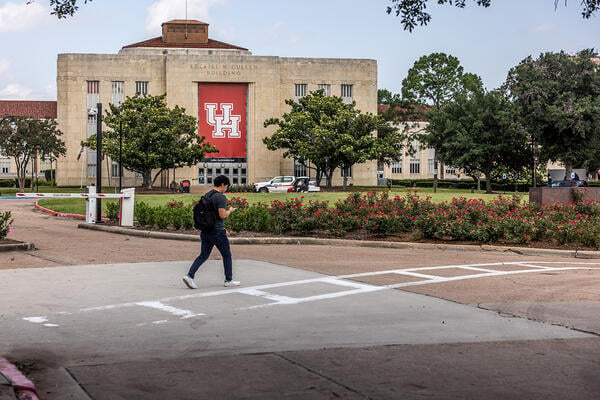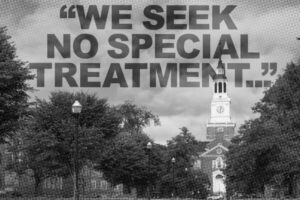
University of Houston Cancels Oppression & Justice Course
The University of Houston is currently conducting a review of its general education curriculum.
JasonDoiy/iStock/Getty Images
The University of Houston has scrapped a previously required class that teaches master of social work students about societal power imbalances, racial prejudice and social justice. The decision was made without any faculty input, sources told Inside Higher Ed.
Students in the Graduate College of Social Work received the news on Oct. 10 via an email from three student affairs officials.
“As part of upcoming changes to the curriculum and degree plan, this course will not be offered at this time,” the officials wrote. “We understand that this adjustment may raise questions, and we want to assure you that it will not affect any student’s ability to successfully progress through the MSW program or meet graduation requirements on time.”
The email did not include further explanation for why the course would be cut or what the upcoming changes to the curriculum would be, and spokespeople for the University of Houston didn’t share any information that wasn’t already included in that email.
The move fits with recent actions by every public university system in Texas to review, flag or censor course content related to gender identity and race. Earlier this month, the University of Houston said officials were completing a review of general education courses in compliance with Texas Senate Bill 37, which took effect this fall. The bill requires all public institutions to review general education curricula every five years, though the first reviews are not due until 2027.
Alan Dettlaff, a professor of social work at the University of Houston who was scheduled to teach the class later this fall, posted about the decision on Bluesky.
“Yesterday I was told that the class I’m scheduled to teach this month, Confronting Oppression & Injustice, is no longer part of our curriculum,” Dettlaff wrote. “This is a required class yet there was no discussion, no faculty vote, just an email saying the class no longer exists. This is what it’s like in Texas now.”
In a statement to Inside Higher Ed, the University of Houston American Association of University Professors chapter condemned the cancellation.
“The cancellation of a required class at the Graduate College of Social Work reflects intense political pressure on Texas universities to censor content that some find objectionable. The U.S. higher education system is the best in the world because decisions about what students learn have historically been made by those who study, research, and teach a subject—not by politicians,” the statement read. “When elected officials pressure universities to remove or alter courses, they achieve indirectly what the First Amendment prohibits them from doing directly: censoring ideas and viewpoints they dislike. Texas students will be the worse for it.”
At least one section of the course was underway when officials announced the cancellation. Students currently enrolled in the class will be allowed to finish it, according to the Oct. 10 email. Those signed up for the next session were told they would be contacted by the director of student advising. Officials also removed a midterm assignment asking students to reflect on “understanding oppression,” according to a source outside the department with knowledge of the situation. The still-posted online syllabus notes that the paper accounts for about a third of each student’s overall grade.
Full-time master of social work students typically take the course in the spring of their first year, according to the University of Houston website, where the class is still listed. According to the syllabus, the course “will examine a set of intersectional social justice issues, centering race, that impact our daily lives in differential ways and inform the prejudices we hold, and that exist, within larger structures of power.” Scheduled discussion and lecture topics included critical race theory and conscientization, intersectionality, race and colorism, gender, sexual orientation, classism, ability and disability, and anti-oppressive practice.

Source link



